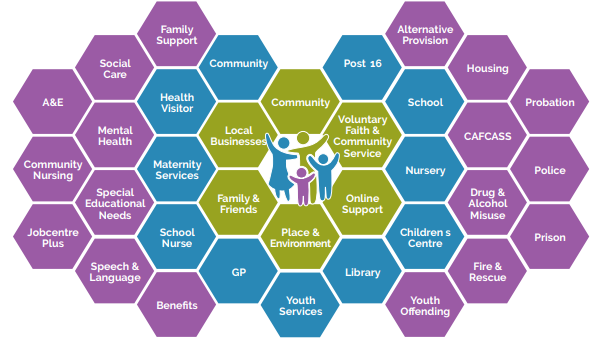This is the support provided for children, young people and their families to respond when difficulties begin to emerge or to stop problems developing in the future. This support can be provided at any point in a child’s life to stop small problems getting bigger. Prevention and Early Help is not a specific service but a collaborative approach across all agencies that work with children, young people and families, who will work together to improve the outcomes for children, young people and families.
Bradford's Prevention and Early Help offer involves a wide range of partners all playing key roles in providing access to information, support and the tools needed to help build the resilience of children, young people and families. The aim is to identify and build on a family’s strengths and work towards them being able to resolve their own difficulties, develop skills and better manage future challenges.
